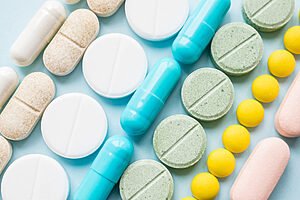Prescription drug addiction is a persistent problem in the United States. It is also a growing problem, especially with prescription painkillers such as hydrocodone. According to the National Survey on Drug Use and Health (NSDUH), 6.5% of Americans aged 12 or older used prescription drugs for non-medical reasons in 2015. This is a significant increase from the 5.1% who reported non-medical use of prescription drugs in 2012. Prescription drug abuse affects people of all ages and backgrounds because it most often begins with a legal medical prescription for pain after surgery or a major injury.
There are many signs of hydrocodone abuse. Learning to identify them and seek professional treatment when necessary is important. Swift River offers professional prescription drug addiction treatment. Call 413.570.9698 to learn more.
What Is Hydrocodone?
Hydrocodone is a type of prescription opioid that is highly addictive and can produce euphoric effects in high doses. Other common names for drugs containing hydrocodone include:
- Vicodin
- Lortab
- Lorcet
- Hycodan
- Norco
Like other opioids, hydrocodone acts as a strong pain reliever for people who require around-the-clock relief and do not respond to other pain medications. Although this can be effective for short-term use, taking hydrocodone for an extended amount of time carries several serious risks, including tolerance, dependence, and addiction.
Knowing the signs of hydrocodone abuse can be the first step in getting yourself or a loved one prescription drug addiction treatment.
What Are Signs of Hydrocodone Abuse?
Hydrocodone abuse refers to any use of the drug that is not prescribed by a doctor, such as:
- Taking higher doses than directed
- Taking doses more frequently
- Taking hydrocodone without a prescription
- Taking hydrocodone with other drugs (i.e., alcohol) to experience a more powerful high
Behavioral Signs Of Hydrocodone Use
Hydrocodone is a powerful drug that can cause mild to drastic effects on behavior when taken in any way other than prescribed by a doctor. These effects may impact mood, social life, and cause difficulties such as financial problems and strained relationships. Changes in behavior that may indicate hydrocodone use:
- Constant fatigue
- Visiting multiple doctors to get more pills
- Running out of prescriptions early
- Stealing pills from another person’s prescription
- Withdrawing from friends and family
- Snorting or injecting hydrocodone
- Continuing to take hydrocodone despite negative effects on health, relationships, or work life
- Neglecting personal or professional responsibilities in order to abuse drugs
Physical Signs Of Hydrocodone Use
Hydrocodone is an opioid that works in the body by blocking pain signals in the brain and slowing down activity in the central nervous system (CNS). The central nervous system consists of the brain and spinal cord and is responsible for regulating a number of vital functions in the body. Taking hydrocodone can cause drowsiness, decreased heart rate, and reduced blood pressure, among other effects. When taken in high doses, these side effects can be even more pronounced. Depending on the amount taken, hydrocodone may cause the following effects:
- Blurry vision
- Dizziness
- Sedation
- Dry mouth
- Tiny pupils
- Itchiness
- Slurred speech
- Nausea and vomiting
- Slow heartbeat
- Headaches
- Muscle weakness
- Seizures
Psychological Signs Of Hydrocodone Use
Short- and long-term abuse of hydrocodone can cause changes in the brain that impact mood as well as certain cognitive functions such as decision-making and memory. People who frequently abuse hydrocodone may also begin to crave the drug between doses or feel that they need to take higher doses to continue feeling the desired effects. This is a sign of drug tolerance. Mental and psychological signs of hydrocodone use:
- Euphoria
- Confusion
- Depression
- Anxiety
- Poor judgment
- Inability to concentrate on tasks
- Addiction
Swift River Treatment For Hydrocodone Use
Hydrocodone is one of the most commonly used opioids in the United States and can lead to devastating consequences without treatment. At Swift River, our rehab center offers a comprehensive treatment program for prescription drug addiction that is capable of helping patients overcome all aspects of addiction. This includes symptoms of withdrawal, as well as opioid cravings. Treatment services offered within our opioid abuse and addiction rehab program include:
- Medical detox
- Medication-assisted treatment (MAT)
- Inpatient treatment program
- Partial hospitalization program (PHP)
- Intensive outpatient program (IOP)
- Veterans support program
- 12-step program
- Alumni program
Overcoming an addiction to hydrocodone is not an overnight process. Our inpatient residential program for opioid addiction offers a level of supervision, structure, and support that can be essential for people in the early stages of opioid addiction recovery. Recovery from hydrocodone abuse is possible.
Learn more about our hydrocodone abuse and addiction treatment program by contacting us at 413.570.9698 today.













